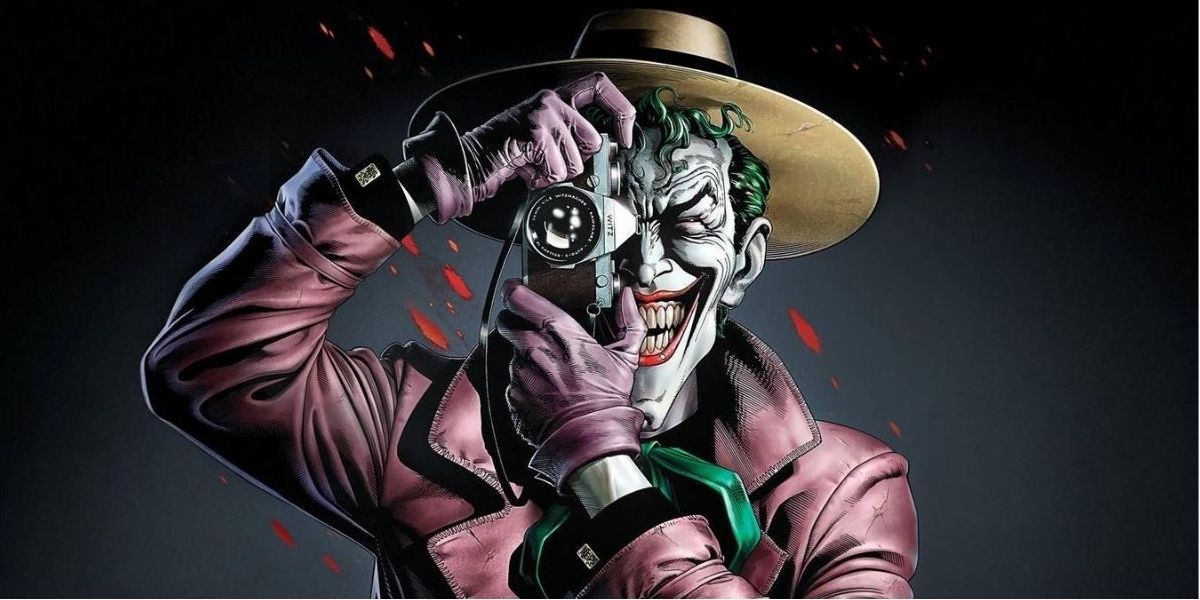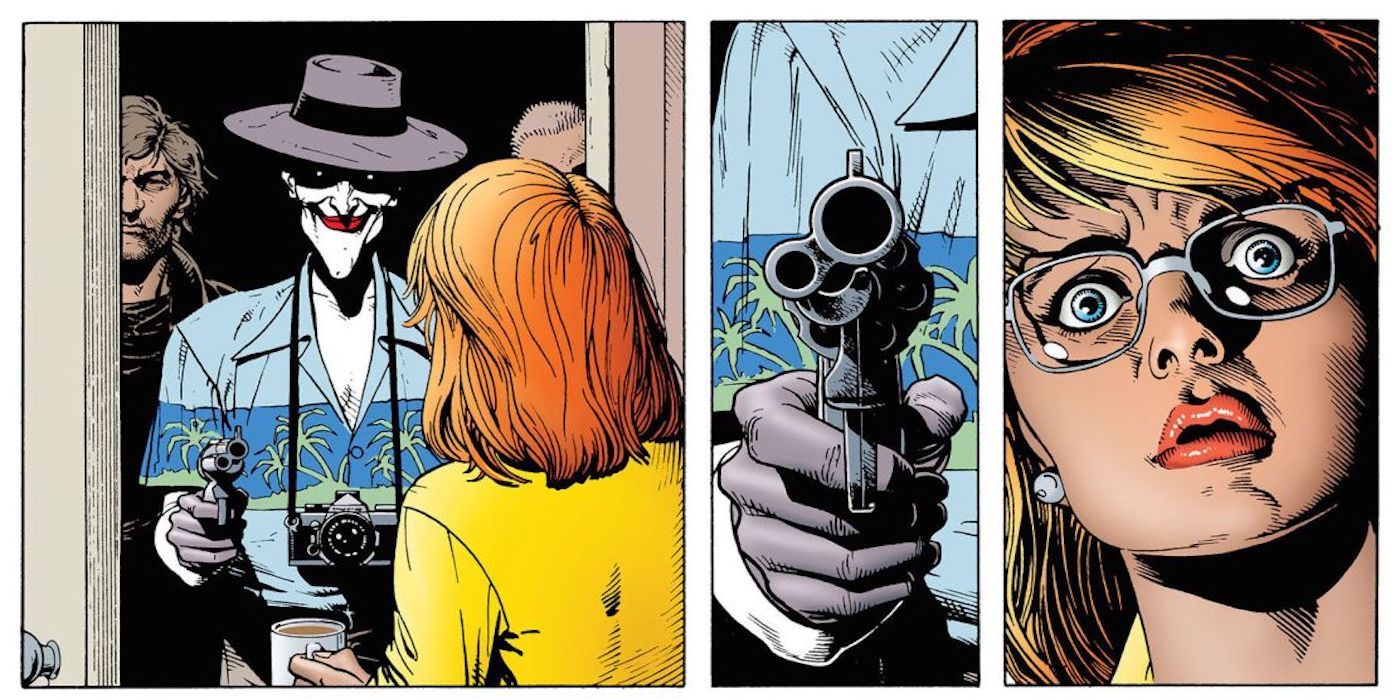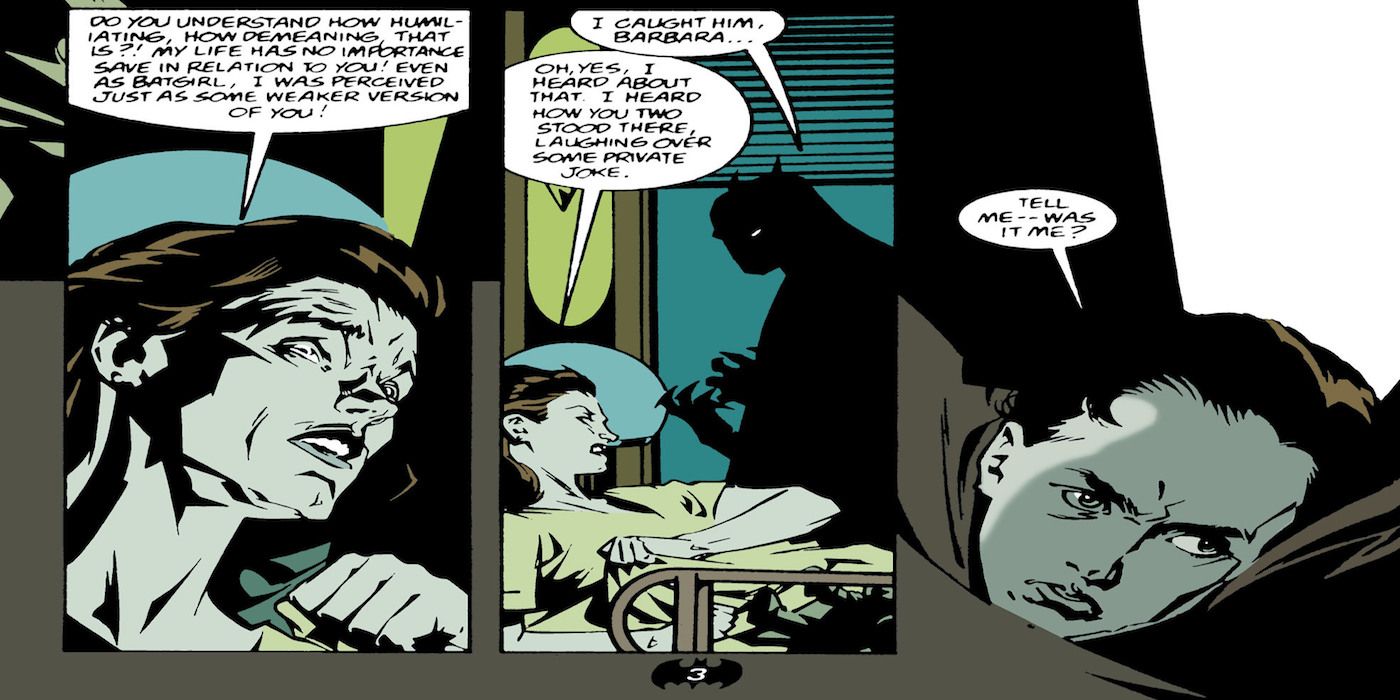Batman: The Killing Joke was a dark turning point for the Batman mythos. Alan Moore and Brian Bolland's 1988 story examined the relationship between Batman and The Joker in a never-before-seen way, painting the two as equally insane mirrors of one another that are trapped in a never-ending game of cat and mouse. Since it's publication, The Killing Joke has gone on to be one of the most influential depictions of the Joker of all time, both in comics and on the big screen. But no comic book is without its critics. The Killing Joke has had many detractors over the years, including Alan Moore himself, who feels as though he went too far with introducing gritty realism and violence into the unrealistic and campy world of Batman. But there's another important critic with something negative to say about The Killing Joke: Barbara Gordon, who was attacked by the Joker in that very same comic book.
After she was shot and paralyzed in the pages of The Killing Joke, Barbara Gordon was forced to retire the mantle of Batgirl. But rather than fade into obscurity, Barbara instead reinvented herself as a new kind of hero - the genius hacker/information broker known as Oracle. This transformation was largely due to the efforts of subsequent writer duo John Ostrander and Kim Yale, who introduced her Oracle persona in the pages of Suicide Squad and then fully revealed that Oracle's identity in Suicide Squad #38.
In the aftermath of The Killing Joke, it was important for writers to empower Barbara as a character so as not to let her be reduced to a mere plot device for Batman. So it's only fitting that she would go on to become an even more important hero as Oracle. Still, that doesn't mean Barbara has to be happy with what happened in The Killing Joke - in fact, she's doesn't think the Joker's final gag is very funny at all.
The Batman Chronicles #5 (written by Ostrander and Yale) provides both an origin story for Oracle and some meta commentary on Barbara's role in The Killing Joke. The comic was published in 1996, but flashes back to the aftermath of The Killing Joke and shows how Barbara Gordon decided to use her computer skills to continue being a hero as Oracle. The comic pulls no punches when it comes to Babs' portrayal in The Killing Joke.
The story's opening narration is Barbara herself thinking about how stupid she behaved and how, realistically, there's no way a professional crimefighter like her should have answered the door hiding Joker without checking who it was. When Batman tries to comfort her, an understandably upset Barbara yells about how frustrated she is at being reduced to a chess piece meant to bait her father and peers. So when she sarcastically asks Batman if the "Joke" he and the Joker were laughing about together was actually her, it's obviously meant as a dig at The Killing Joke and her poor treatment in that story.
Batman: The Killing Joke famously ends with Batman confronting the Joker in the pouring rain and listening to the Clown Prince of Crime tell him one final joke about two lunatics breaking out of an insane asylum. After hearing the punchline, the two of them collapse in rapturous laughter, ending the comic with a mirror image from the first page, a move that symbolically shows how Batman and the Joker's conflict will repeat itself forever. Barbara Gordon isn't a fan of this ending, however, which is why she calls out Batman for sharing a laugh with his sworn enemy who had just crippled her for life.
Batman laughing at the Joker's comedy routine does seem out of character for him, especially considering the horrible things The Joker just did over the course of The Killing Joke. This might be because The Killing Joke wasn't intended to be canon by Alan Moore, and it was only incorporated into the DC Universe because of how well received it was. That also means that, while it might not make any sense to Batgirl, the scene of Batman and the Joker laughing at the end of The Killing Joke will forever be a part of DC history.



